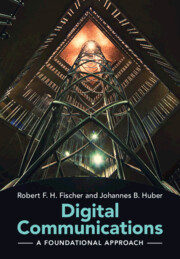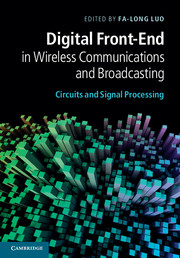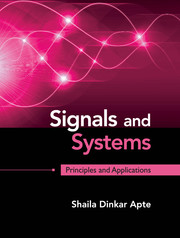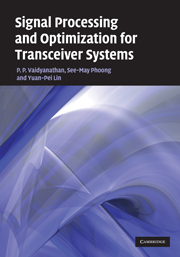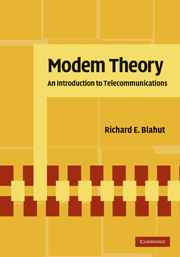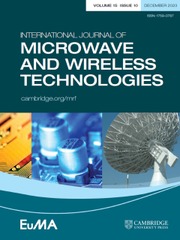Digital Communications
Introducing the fundamentals of digital communication with a robust bottom-up approach, this textbook is designed to equip senior undergraduate and graduate students in communications engineering with the core skills they need to assess, compare, and design state-of-the-art digital communication systems. Delivering a fast, concise grounding in key algorithms, concepts, and mathematical principles, this textbook provides all the mathematical tools for understanding state-of-the-art digital communications. The authors prioritise readability and accessibility, to quickly get students up to speed on key topics in digital communication, and includes all relevant derivations. Presenting over 70 carefully designed multi-part end-of-chapter problems with over 360 individual questions, this textbook gauges student understanding and translates knowledge to real-world problem solving. Accompanied online by interactive visualizations of signals, downloadable Matlab code, and solutions for instructors.
- Suitable for a one- or two-semester sequence in digital communications
- Detailed coverage of core mathematical principles, algorithms, and concepts, without coverage of specific implementations
- A reliable resource, based on three decades' worth of research and teaching
Reviews & endorsements
'Delve into the intricacies of digital communications with this comprehensive guide which caters to all levels. Offering a solid foundation, it meticulously covers essential aspects, ensuring readers have access to all the necessary background information. With a plethora of exercises and illustrative examples, it stands as an exceptional resource on digital communications.' Alexander Lampe, Hochschule Mittweida
'Accurate, concise, and very readable, this is a real gem for students and instructors alike. It focuses on the mathematical tools and algorithms for basic as well as advanced digital transmission schemes. The authors prove their claims in detail, and each chapter provides very helpful examples and problems. Filling a significant gap in the literature, it is highly recommended to everyone interested in really understanding digital communications.' Norbert Goertz, Technische Universität Wien
'Written with a wealth of experience in educating generations of students in electrical engineering, this is an ideal companion for undergraduates and graduates studying digital communications. This textbook gives an accessible and in-depth introduction to basic principles.' Gerhard Kramer, Technical University of Munich
Product details
October 2024Hardback
9781009429665
540 pages
261 × 186 × 35 mm
1.19kg
Temporarily unavailable - available from TBC
Table of Contents
- Preface
- 1. Introduction
- 2. Equivalent Complex Baseband Signals
- 3. Digital Pulse-amplitude
- 4. Variants of PAM Transmission Schemes
- 5. Non-coherent Demodulation
- 6. Signal Space Representation
- 7. Digital Frequency and Phase Modulation
- 8. Equalization of Dispersive Channels
- 9. Orthogonal Frequency-division Mutliplexing
- Appendices
- Index.

